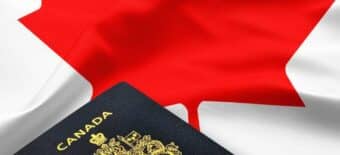What is a DWI?
Anyone driving under the influence of illegal drugs, controlled drugs, prescription drugs, alcohol, or even sleeping pills can be charged with a DWI (driving while impaired), which would result in a criminal record in the USA, as the law isn’t only alcohol specific.
What is the difference between DUI and DWI?
DUI and DWI essentially mean the same thing. DUI is a term used more generally in the United States, while DWI is the preferred term used by Canadian authorities. DWI stands for driving while intoxicated, while DUI stands for driving under the influence.
To be charged with a DWI resulting in a criminal record, motor vehicle operators usually have a blood alcohol concentration of 0.08 or more. In addition, anyone driving a motor vehicle in Canada with two nanograms (NG) of THC per milliliter of blood will also be charged with a DWI.
What are the reasons for having a DWI?
Whether you are a foreign citizen or a Canadian national, you can get a DWI in Canada due to driving under the influence of alcohol or drugs. In the United States, additional penalties may occur, and laws can vary from state to state. In Canada, impaired driving is considered a federal criminal offense under the Canadian Criminal Code.
The following reasons could result in a DWI (driving while intoxicated):
- Impaired driving by alcohol and/or drugs (based on physical evidence and police observations)
- Operating a motor vehicle with a blood alcohol level exceeding 80 mg
- Having a blood drug concentration exceeding the level prescribed by regulation
- Refusing to provide a breath or blood sample
- Having care and control of a motor vehicle while impaired
- DUIs causing bodily harm
- DUIs causing death
For more information on which drugs are controlled and illegal in Canada, visit the Canadian government’s website.
How to obtain a Temporary Resident Permit (TRP) with a DWI?
Depending on the sentence imposed and the period of time since the conviction occurred, the criminal rehabilitation application process may be the best solution for you. However, if you are not yet eligible for this, there is also a temporary solution, namely the TRP. Our Canadian immigration attorneys can help you determine if you are eligible for criminal rehabilitation.
If not, another possible solution is applying for a Temporary Resident Permit (TRP application). This could grant temporary access to Canada while you wait to become eligible for criminal rehabilitation, the permanent solution. Once granted, criminal rehabilitation (CR) will allow you to travel and enter Canada without restrictions.
KLM Immigration: your Canadian immigration law firm for criminal rehabilitation
Entering Canada with a DWI requires careful examination of one’s criminal history, the DWI conviction details, and general eligibility requirements. We strongly suggest getting in touch with our team of experienced immigration lawyers for personalized suggestions and increasing your chances of success.
Beyond helping with getting into Canada with a DWI on your background record, we offer support for the following:
- Criminal inadmissibility
- Student permit and student visa application
- Work Permit and work visa application
- Immigration by Investment to both Canada (via the Quebec Investor Immigration Program) and the United States
- Permanent residency applications to Canada and the United States
- Family class sponsorship: Super visa, fiancé visa and more
Explore your options today by calling our team for a free consultation at 1-888-603-3003. You can also reach us by filling out our contact form.



